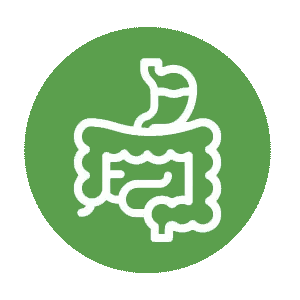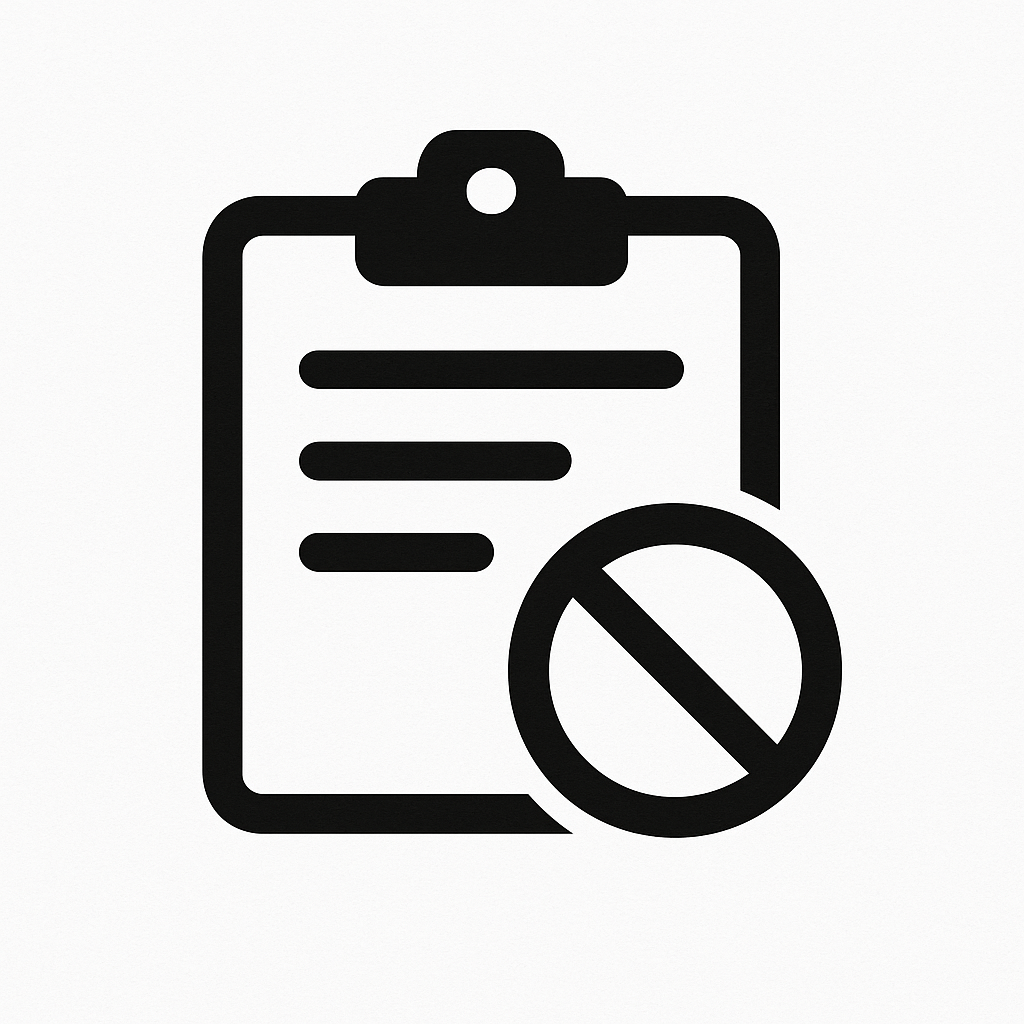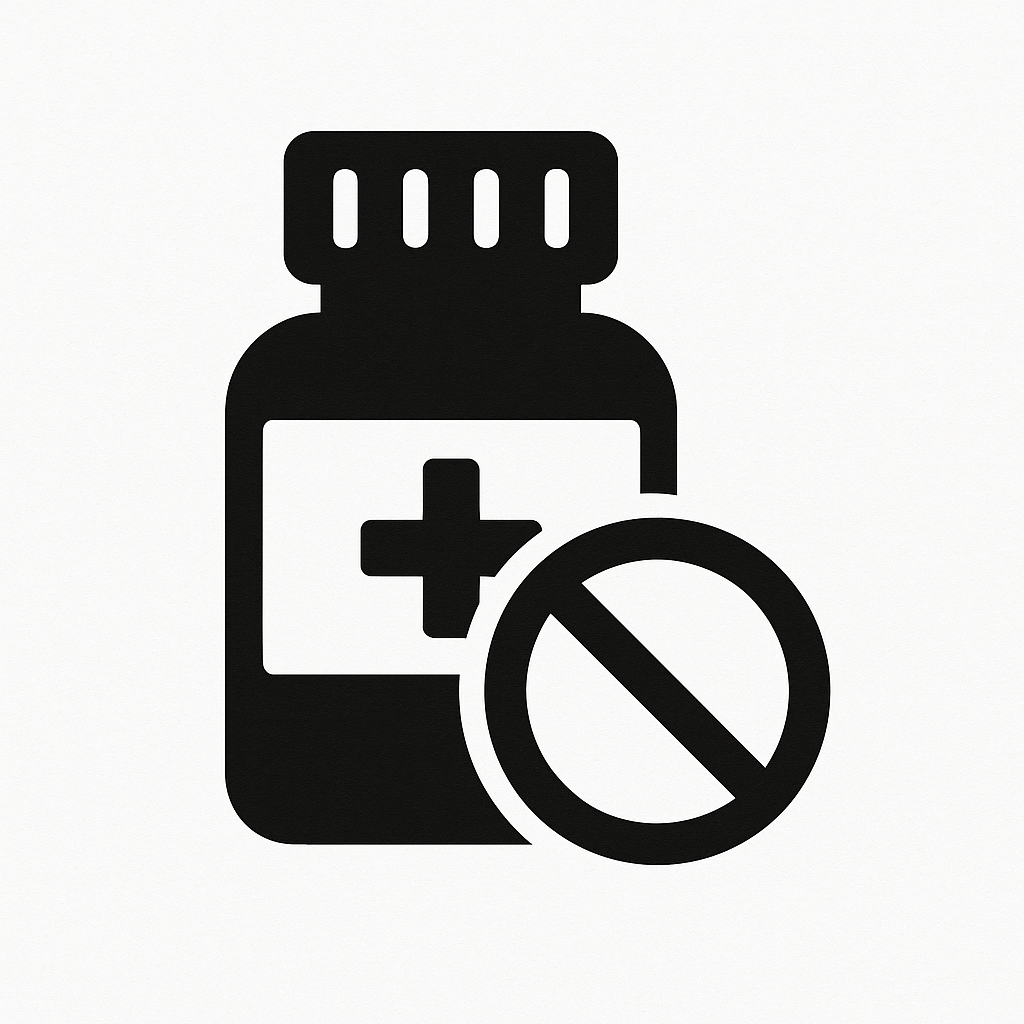
Travel Bloat: What To Know and Do About It
Few things are more frustrating than starting a long-awaited vacation feeling bloated, uncomfortable, and self-conscious about your distended stomach. Yet travel bloat affects the majority of travelers at some point, transforming exciting journeys into uncomfortable ordeals. Whether you're taking a cross-country flight, embarking on a road trip, or exploring a foreign country, digestive issues can seriously impact your travel experience.
The good news is that travel bloat isn't random or inevitable. Understanding why it happens and implementing strategic preventive measures can dramatically reduce or eliminate this common travel complaint, allowing you to focus on enjoying your trip rather than obsessing over your uncomfortable midsection.
What Is Travel Bloat?
Travel bloat refers to the uncomfortable sensation of abdominal fullness, distension, and sometimes visible swelling that occurs during or shortly after travel. It's characterized by a feeling that your stomach is stretched or tight, visible abdominal protrusion beyond your normal appearance, increased gas production or difficulty passing gas, and general discomfort in the abdominal region.
Travel bloat can begin during the journey itself—particularly during flights—or may develop over the first few days in a new location as your body adjusts to changes in routine, food, and environment.
While uncomfortable and sometimes embarrassing, travel bloat is typically benign and temporary. However, understanding its causes allows you to take proactive steps to minimize or prevent it entirely.
Why Does Travel Bloat Happen?
Travel creates a perfect storm of factors that contribute to digestive distress and bloating. Here are the primary culprits:
Cabin Pressure Changes During Flights
Air travel is the most notorious trigger for travel bloat, and physics plays a significant role. Commercial aircraft cabins are pressurized to the equivalent of 6,000-8,000 feet elevation—significantly lower pressure than sea level.
According to basic gas laws, when external pressure decreases, gas expands. The gas naturally present in your digestive tract expands by approximately 25-30% during flight. This expansion creates pressure, discomfort, and that characteristic bloated feeling.
This effect begins during ascent and continues throughout the flight. The longer the flight, the more pronounced the discomfort can become as gas continues expanding in your intestines.
Dehydration
Air travel is incredibly dehydrating. Aircraft cabin humidity typically runs between 10-20%—much lower than the 30-65% humidity most people find comfortable. This dry environment pulls moisture from your body through your skin and respiratory system.
Additionally, many travelers don't drink adequate water during flights due to concerns about needing bathroom access, limited beverage service, or simply forgetting to hydrate.
Dehydration slows digestive processes, leading to constipation and increased bloating. When your body lacks adequate water, the colon extracts more fluid from waste material, making it harder and more difficult to pass. This backup contributes significantly to bloating and discomfort.
Disrupted Eating Patterns
Travel often disrupts normal eating schedules and patterns. You might eat at unusual times, skip meals entirely due to scheduling conflicts, consume larger or richer meals than typical, or eat quickly without proper chewing due to time constraints.
These disruptions confuse your digestive system, which thrives on routine. Irregular eating patterns can slow digestion, increase gas production, and contribute to bloating.
Unfamiliar Foods and Water
Traveling, especially internationally, exposes you to new foods, different preparation methods, and unfamiliar bacteria in local water supplies. Even if the water is perfectly safe for locals whose systems have adapted, it can cause digestive upset in travelers.
New foods may contain ingredients your body isn't accustomed to processing efficiently. Different cooking oils, spices, and food combinations can trigger digestive symptoms. Additionally, travelers often indulge in richer, fattier, or more processed foods than they typically consume at home.
Reduced Physical Activity
Despite all the walking some trips involve, travel often includes extended periods of sitting—in planes, cars, trains, or at restaurants and tourist attractions. This reduced movement and prolonged sitting slows intestinal motility, the wave-like muscle contractions that move food through your digestive tract.
When motility slows, food sits in your digestive system longer, fermenting and producing more gas. The result is increased bloating and discomfort.
Stress and Anxiety
Travel, even when exciting, involves stress. Security lines, flight delays, navigating unfamiliar places, language barriers, and disrupted sleep all activate your body's stress response.
Stress significantly impacts digestion through the gut-brain axis—the bidirectional communication between your nervous system and digestive tract. Stress can alter gut motility, increase inflammation, change gut bacteria composition, and increase sensitivity to digestive symptoms.
For many people, travel anxiety manifests directly as digestive symptoms including bloating, cramping, and altered bowel habits.
Changes in Gut Bacteria
Your gut microbiome—the trillions of bacteria living in your intestines—plays a crucial role in digestion, immunity, and overall health. This bacterial community is sensitive to changes in diet, sleep, stress, and environment.
Travel disrupts your microbiome through different foods and water, altered eating schedules, stress, and sometimes antibiotic use for travel-related illnesses. These changes can temporarily throw off the balance of bacteria, leading to increased gas production and bloating as your microbiome adjusts.
Time Zone Changes and Disrupted Sleep
Crossing time zones disrupts your circadian rhythm—the internal clock regulating numerous bodily processes including digestion. Your digestive system operates on a schedule, producing enzymes and hormones at specific times.
Jet lag throws off this schedule, potentially causing digestive enzymes to be released at inappropriate times or in incorrect amounts. Additionally, poor sleep quality during travel further disrupts hormone regulation, including those affecting appetite and digestion.
Alcohol and Caffeine Consumption
Many travelers consume more alcohol than usual during trips—whether to ease flight anxiety, enjoy vacation indulgence, or sample local beverages. Alcohol is inflammatory to the digestive tract, can cause dehydration, and disrupts gut bacteria balance.
Similarly, altered caffeine consumption—whether increased intake to combat travel fatigue or reduced intake due to schedule changes—can affect digestion and contribute to bloating.
Preventing Travel Bloat: Before Your Trip
The best approach to travel bloat is prevention. Taking steps before your trip can significantly reduce your likelihood of experiencing uncomfortable symptoms.
Optimize Your Diet in the Days Before Travel
In the 2-3 days before departure, focus your diet on easily digestible foods. Avoid gas-producing foods like beans, cruciferous vegetables (broccoli, cauliflower, cabbage), and carbonated beverages. Reduce sodium intake, as excess salt promotes water retention that exacerbates bloating. Moderate fiber intake—too much can increase gas production, but too little can cause constipation.
Stay well-hydrated in the days before travel to ensure you start your journey in an optimally hydrated state.
Consider Probiotic Supplementation
Starting a probiotic supplement 1-2 weeks before travel can help strengthen your gut microbiome, potentially making it more resilient to travel-related disruptions. Probiotics may help reduce traveler's diarrhea risk and support overall digestive function.
Look for high-quality probiotics with multiple strains and appropriate CFU (colony-forming units) counts. The Matevara gut health and digestive support collection offers products specifically formulated to support digestive wellness during challenging situations like travel.
Pack Strategically
Bring digestive support items in your carry-on including digestive enzymes, ginger chews or tea bags, peppermint tea or oil, probiotics that don't require refrigeration, and electrolyte packets for hydration support.
Having these items readily available allows you to address symptoms as soon as they arise rather than waiting to find them at your destination.
During Your Flight: Minimizing Bloat
Air travel presents the greatest bloating challenge, but strategic actions can minimize discomfort.
Hydration Is Critical
Drink water consistently throughout your flight—aim for at least 8 ounces per hour of flight time. Avoid excessive caffeine and alcohol, which are dehydrating. Consider bringing an empty water bottle to fill after security, ensuring you always have water available.
Don't restrict water intake due to bathroom concerns. Staying hydrated is more important than avoiding a few trips to the lavatory.
Choose Your Foods Carefully
Avoid gas-producing foods before and during the flight. Skip carbonated beverages, as the bubbles add more gas to your already expanding digestive system. Choose light, easily digestible meals rather than heavy, rich options. Avoid excessive salt, which promotes water retention.
Many travelers find that eating a light meal before the flight and waiting until arrival for a more substantial meal reduces bloating compared to eating heavily during the flight.
Move Regularly
Stand up and walk the aisle every 1-2 hours during long flights. Do seated exercises like ankle circles, leg lifts, and torso twists. Even small movements stimulate intestinal motility and help gas move through your system rather than accumulating.
Movement also improves circulation, reducing the risk of blood clots and decreasing overall discomfort during long flights.
Wear Comfortable Clothing
Tight waistbands and restrictive clothing compress your abdomen, exacerbating bloating discomfort and potentially restricting proper digestion. Wear loose, comfortable clothing with elastic or adjustable waistbands.
Consider layering so you can adjust to temperature changes without compromising comfort.
Try Gentle Abdominal Massage
Gentle clockwise abdominal massage can help stimulate digestion and encourage gas to move through your system. Use light pressure and circular motions around your navel area.
This can be done discreetly while seated and provides relief for many travelers.
Use Digestive Enzymes
Taking digestive enzymes before or with your in-flight meal can help your body break down food more efficiently, reducing gas production and bloating. This is particularly helpful if you know you'll be eating foods that typically cause you digestive issues.
At Your Destination: Managing Ongoing Bloat
Even with prevention efforts, you may experience some bloating upon arrival. Here's how to manage it:
Reestablish Routine Quickly
Try to eat meals at regular times in your new time zone. Maintain consistent sleep and wake times to help your circadian rhythm adjust. Continue regular physical activity—morning walks are excellent for stimulating digestion.
Your body craves routine, and reestablishing patterns quickly helps your digestive system normalize.
Continue Prioritizing Hydration
Maintain adequate water intake at your destination. Be cautious with local water if you're uncertain about safety—use bottled water if necessary. Monitor urine color as a hydration indicator—pale yellow suggests adequate hydration.
Gradually Introduce New Foods
When trying local cuisine, introduce unfamiliar foods gradually rather than completely overhauling your diet immediately. Start with smaller portions of new items while maintaining some familiar foods. Pay attention to how your body responds to different foods and adjust accordingly.
This measured approach gives your digestive system time to adapt without overwhelming it.
Stay Active
Incorporate movement into your travel activities through walking tours instead of bus tours, stairs instead of elevators when possible, and morning or evening walks or jogs. Physical activity stimulates digestion, reduces stress, and helps gas move through your system.
Use Natural Remedies
Several natural approaches can help reduce bloating:
Ginger tea or ginger chews have anti-inflammatory properties and aid digestion. Peppermint tea relaxes digestive muscles and relieves gas. Fennel tea or seeds reduce bloating and gas. Gentle yoga poses like child's pose, wind-relieving pose, and seated twists encourage gas release.
Consider Activated Charcoal
Activated charcoal binds to gas in the digestive tract, potentially reducing bloating. It's most effective when taken before eating foods you know cause you problems. However, charcoal can interfere with nutrient and medication absorption, so use it sparingly and away from medications.
Monitor Alcohol and Caffeine
While vacation often involves indulgence, be mindful of alcohol and caffeine intake, as both can worsen bloating. Alternate alcoholic drinks with water. Limit caffeine to morning hours to avoid sleep disruption.
Moderation allows you to enjoy yourself without exacerbating digestive issues.
Special Considerations for Different Types of Travel
Road Trips
Long car rides present unique challenges including extended sitting with minimal movement, tendency to snack on less-healthy convenience foods, and possible motion sickness affecting digestion.
Combat road trip bloat by taking frequent breaks to walk and stretch, packing healthy snacks like fruit, nuts, and vegetables, staying hydrated with water rather than sugary drinks, and avoiding heavy meals right before long driving stretches.
International Travel
International trips involve additional factors including significant time zone changes, unfamiliar foods and preparation methods, potential water safety concerns, and language barriers that may make finding appropriate foods challenging.
Prepare for international travel by researching local cuisine beforehand, bringing digestive support supplements, learning key phrases related to dietary needs in the local language, and allowing extra time for your body to adjust upon arrival.
Cruise Ships
Cruise travel often involves unlimited food availability, rich and indulgent meals, limited physical activity despite ship size, and alcohol consumption as part of the cruise experience.
Minimize cruise bloat by choosing lighter meal options at buffets, walking the ship's deck regularly, maintaining some routine despite 24-hour food availability, and moderating alcohol consumption.
When to Seek Medical Attention
While travel bloat is typically benign, certain symptoms warrant medical evaluation:
Severe abdominal pain that doesn't improve. Bloating accompanied by fever. Persistent vomiting or inability to keep food down. Blood in stool or black, tarry stools. Bloating that persists for more than a week after returning home. Significant changes in bowel habits that don't resolve.
These symptoms may indicate conditions beyond simple travel bloat requiring professional medical assessment.
Long-Term Strategies for Frequent Travelers
If you travel regularly for work or pleasure, consider these ongoing strategies:
Maintain good digestive health between trips through balanced diet, regular exercise, stress management, and adequate sleep. Keep a travel kit with digestive support items always ready. Learn which foods and strategies work best for your body through experimentation. Consider consulting a gastroenterologist or nutritionist if travel consistently causes significant digestive issues.
For comprehensive support for your digestive system during travel and beyond, explore the Matevara gut health and digestive support collection, featuring products specifically designed to maintain optimal digestive function even during challenging circumstances.
The Bottom Line
Travel bloat is an incredibly common but manageable condition. Understanding the multiple factors that contribute to it—from cabin pressure changes to dehydration, disrupted routines to stress—allows you to implement targeted prevention and management strategies.
The key is being proactive rather than reactive. Preparing your body before travel, making strategic choices during your journey, and maintaining good habits at your destination can dramatically reduce bloating and allow you to fully enjoy your travels.
Remember that some bloating may be inevitable, especially during long flights or when trying significantly different cuisines. Be patient with your body as it adjusts, implement the strategies outlined here, and don't let temporary digestive discomfort ruin your travel experience.
With proper preparation and smart strategies, you can minimize travel bloat and focus on what really matters—creating memories and enjoying your adventures.
Medical Disclaimer: This article is for informational and educational purposes only and is not intended as medical advice, diagnosis, or treatment. The information provided about travel bloat and digestive issues is not meant to diagnose, treat, cure, or prevent any disease or medical condition. While travel bloat is typically benign and temporary, digestive symptoms can sometimes indicate serious underlying conditions requiring professional medical evaluation. Individual responses to travel and digestive support strategies vary significantly based on personal health status, existing conditions, medications, and specific digestive sensitivities. Always consult with a qualified healthcare professional before using supplements, medications, or implementing significant dietary changes, especially if you have existing digestive conditions, take medications, are pregnant or breastfeeding, or have chronic health issues. Never ignore severe or persistent digestive symptoms or delay seeking medical care because of information in this article. If you experience severe abdominal pain, persistent vomiting, blood in stool, high fever, or other concerning symptoms, seek immediate medical attention.
FDA Disclaimer: These statements have not been evaluated by the Food and Drug Administration. The products and strategies discussed in this article are not intended to diagnose, treat, cure, or prevent any disease. Dietary supplements, probiotics, and digestive enzymes are not regulated in the same manner as pharmaceutical drugs.
DSHEA Notice: Under the Dietary Supplement Health and Education Act (DSHEA) of 1994, probiotics, digestive enzymes, and other supplements are classified as dietary supplements when marketed as such. Manufacturers and distributors are responsible for ensuring safety before marketing, and any health claims must be substantiated and not misleading. Dietary supplements are not intended to replace a balanced diet, healthy lifestyle, or medical treatment.
Supplement and Medication Interactions: Dietary supplements including probiotics, digestive enzymes, and activated charcoal can interact with prescription and over-the-counter medications. Activated charcoal can reduce absorption of medications and nutrients. Probiotics may not be appropriate for people with compromised immune systems. Digestive enzymes may interact with diabetes medications. Always disclose all supplements to your healthcare provider to avoid potentially dangerous interactions, especially before surgical procedures.
Individual Results Disclaimer: Results from implementing these strategies vary widely between individuals based on numerous factors including current digestive health, underlying conditions, diet, stress levels, hydration status, and the specific nature of travel. Some people may experience significant relief from travel bloat while others may notice minimal effects. The information provided represents general guidance and should not be interpreted as personalized medical advice or a guarantee of specific outcomes.
Pregnancy and Medical Conditions: Some recommendations in this article may not be appropriate for pregnant women, people with certain medical conditions, or those taking specific medications. Pregnant women should consult healthcare providers before using digestive supplements or making significant dietary changes. People with gastrointestinal disorders like IBS, IBD, celiac disease, or other conditions should work with healthcare providers to develop personalized travel strategies that account for their specific needs and limitations.
Food Safety: When traveling, particularly internationally, food and water safety are critical concerns. This article focuses on bloating but doesn't comprehensively address food safety practices necessary to prevent serious foodborne illnesses. Follow appropriate food safety guidelines for your destination, including avoiding potentially contaminated water, being cautious with raw foods, and selecting reputable food establishments.
FTC Disclosure: This article contains affiliate links to products. We may receive compensation if you make a purchase through these links. However, this does not influence our content, and we only recommend products we believe may be of value to our readers. The information provided is based on available research and should not be interpreted as a guarantee of results.
Quality and Sourcing: The quality, purity, and potency of digestive supplements including probiotics and enzymes vary significantly between manufacturers. Choose products from reputable companies that provide third-party testing results, transparency about sourcing and manufacturing, and appropriate storage instructions, particularly for probiotics. This article does not endorse specific brands except where explicitly stated.
Not a Substitute for Medical Care: The strategies discussed in this article should not replace professional medical diagnosis, treatment, or monitoring. Persistent digestive issues, chronic bloating, or symptoms that significantly impact quality of life require comprehensive medical evaluation. These approaches may be used as complementary strategies alongside, not instead of, appropriate medical care. Never discontinue prescribed treatments or medications without consulting your healthcare provider.
Emergency Situations: Travel can sometimes result in medical emergencies requiring immediate attention. Severe abdominal pain, persistent vomiting, high fever, signs of dehydration, or other serious symptoms require immediate medical care. Know how to access emergency medical services at your destination and consider travel insurance that covers medical emergencies.
Share








